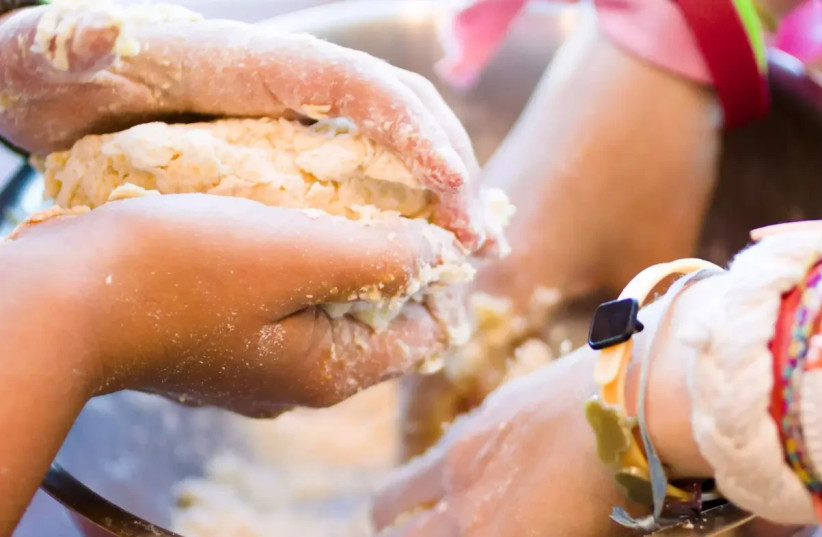The devastating impact of the terrorist attack on October 7 disrupted our lives and left us feeling emotionally overwhelmed.
With many educational institutions closed and children spending extended periods at home, parents now have a vital responsibility of mediating reality and supporting their children's mental health. Engaging in cooking activities together can provide multiple benefits for children in such challenging times.
Cooking: A distraction from boredom and anxiety
Cooking offers a distraction from boredom and anxiety, providing a welcome break from the tensions surrounding them. It also becomes a platform for emotional processing and open dialogue between parents and children. Mor Daniel, an emotional therapist specializing in cooking and art, author of "Cooking Together: Therapy for Children through Cooking," and coordinator of the course "Emotional Cooking" at the Levinsky-Wingate Academic Center, offers valuable advice on empowering activities for your children.
Establishing a routine becomes even more critical in the absence of regular school schedules.
Setting fixed sleep, play, and meal times provides stability for both parents and children. Involving children in the cooking routine can help instill a sense of structure and organization. For instance, assigning each child to assist a parent in preparing a meal allows them to feel a sense of responsibility and contribution.

Children crave the presence of their parents, both physically and emotionally.
By cooking together, parents can spend quality time with their children in a meaningful way. In addition to bonding, children also benefit from the movement and sensory stimulation involved in the cooking process. Each ingredient presents a unique smell, taste, and texture that can positively impact their sensory experiences and emotional regulation.
Encouraging responsibility, parents can involve their children in meal preparation, allowing them to take charge of one meal a day.
This responsibility fosters skills like planning, initiative, and organization. Acknowledging their efforts and emphasizing how their contribution helps the family can boost their confidence. Parents can also engage their children in baking cakes or cookies for soldiers, evacuees, or the wounded, emphasizing the significance of their actions.
To help children understand and process the current situation, parents should communicate the truth in an age-appropriate manner without overwhelming them. Engaging in conversations during cooking activities provides a relaxed and natural setting to discuss their thoughts, understanding, and emotions.
Metaphorical questions, such as "What surrounds you on a day like this?" or "How does this conversation make you feel?" can facilitate deeper discussions.
Creating a pleasant home atmosphere is crucial for children's well-being. Choosing recipes that evoke positive memories or bring joy can help improve the overall mood at home. For example, baking a birthday cake or preparing a dish reminiscent of a cherished family tradition can uplift spirits and create a positive environment.
Parents can consider the following tips for empowering cooking activities with their children:
1. Choose recipes that allow freedom of choice, enabling children to make decisions and feel in control.
2. Opt for forgiving recipes that don't require precise measurements, giving children room for creativity without fear of ruining the dish.
3. Select recipes that encourage creativity, allowing children to experiment and explore different preparation methods.
4. Try recipes that involve collaborative work and require sitting together, fostering a sense of togetherness and comfort.
5. Prioritize recipes with relatively quick results, offering a clear beginning, middle, and end within a short timeframe.
By engaging in therapeutic cooking activities with their children, parents can provide a supportive environment for processing emotions, fostering resilience, and strengthening family bonds during challenging times.
